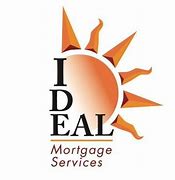
Understanding Home Equity Loans
With the cost of living on the rise, it's no wonder that many homeowners are diligently exploring ways to tap into the value of their homes without selling. Understanding financial tools, like home equity loans, is crucial before making any decisions. This post aims to clarify what a home equity loan is, how it functions, and whether it could be a viable option for you.
What is a Home Equity Loan?
A home equity loan, often referred to as a second mortgage, allows you to borrow a lump sum based on the equity you've accumulated in your home. It's typically repaid in fixed monthly installments over a term ranging between five to fifteen years. The predictability of these payments makes planning easier for many homeowners.
Home Equity Loan vs. HELOC
It's important to distinguish a home equity loan from a home equity line of credit (HELOC). Home equity loans come with fixed interest rates and consistent payment amounts, offering stability. In contrast, HELOCs feature variable rates and flexible draw periods, adding some unpredictability to the borrowing and repayment process.
Tax Implications
There might be potential tax advantages with a home equity loan, such as interest deductions. However, these benefits are only applicable if the loan is used to buy, build, or significantly improve the main home that secures the loan. Using it for any other purposes, like debt consolidation or personal purchases, doesn't qualify under current IRS regulations.
Potential Benefits
Home equity loans typically offer lower interest rates compared to credit cards or personal loans. They can be practical for funding home renovations, covering tuition costs (though it's important to note that interest isn't tax-deductible for education purposes), or consolidating high-interest debt, keeping in mind that such consolidation doesn't afford tax-deductibility either.
Important Considerations
Your home acts as collateral for the loan, which means failure to repay could lead to foreclosure. It's vital to be cautious about over-borrowing. The trap of "reloading" debt—using a loan to pay off existing credit only to accumulate new debt—is another risk to be aware of.
Before opting for a home equity loan, consider the pros and cons carefully. Approach it as a strategic financial decision rather than a quick fix. Speaking with a qualified advisor or lender can help ascertain if a home equity loan aligns with your financial goals. Always remember, secure financial planning is about informed choices.
